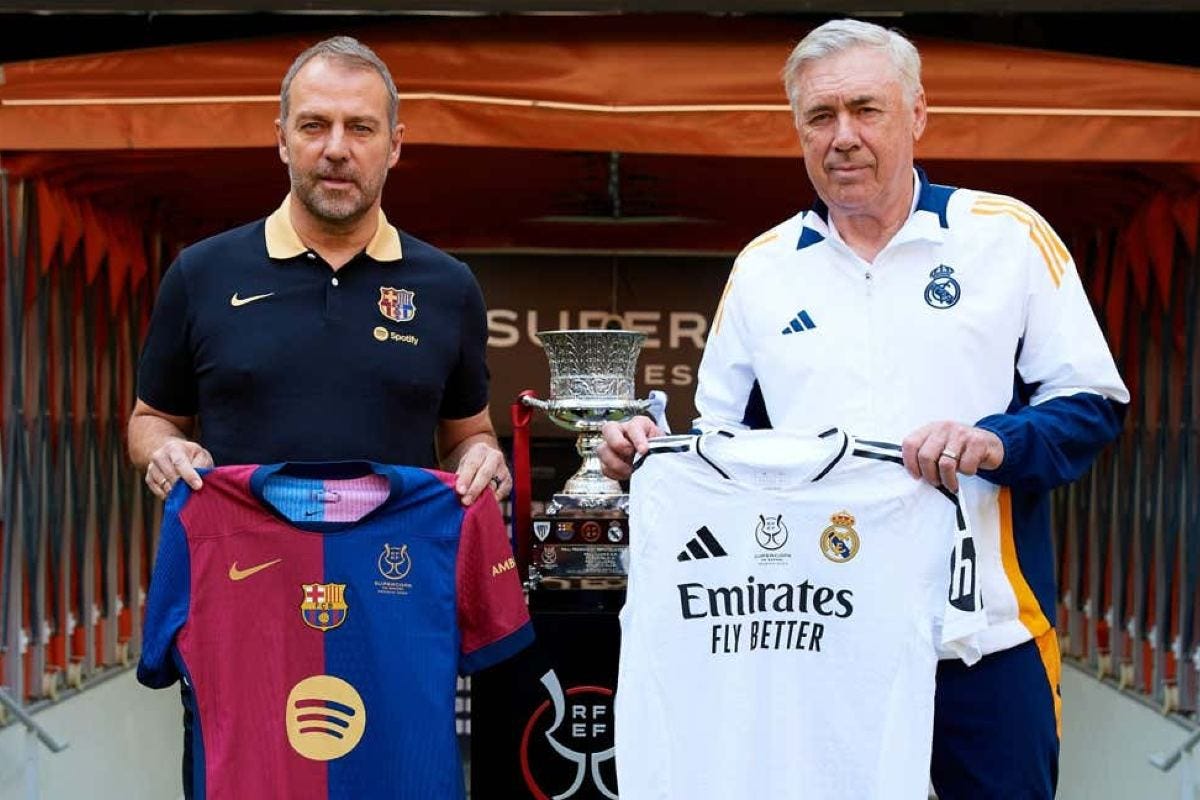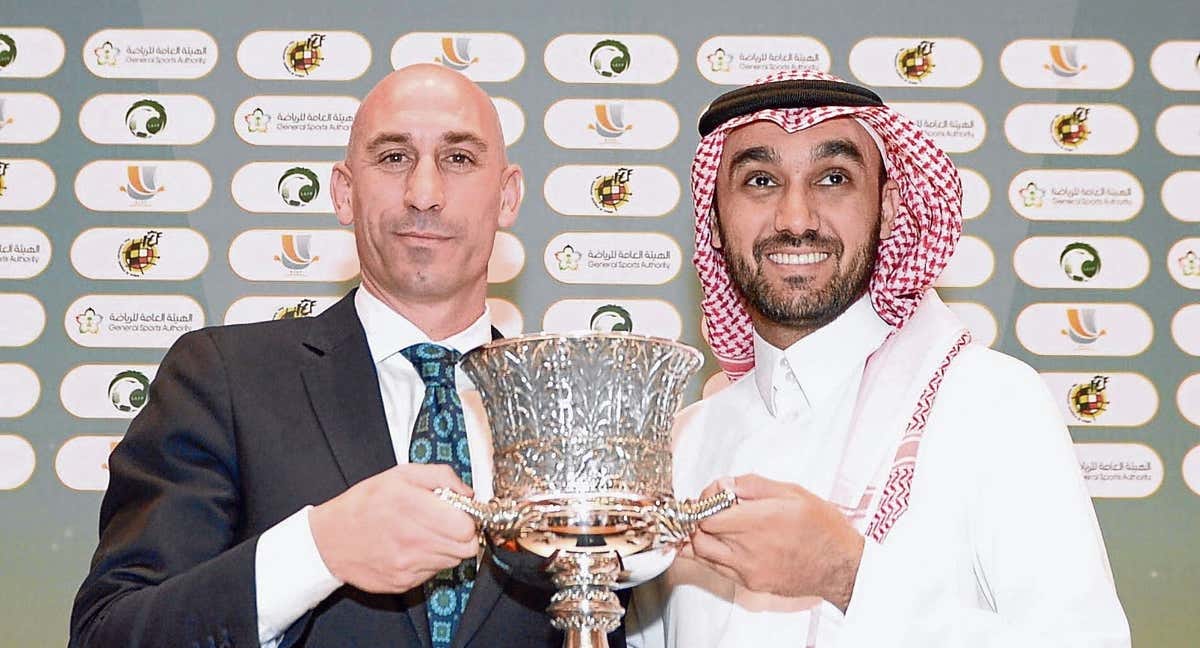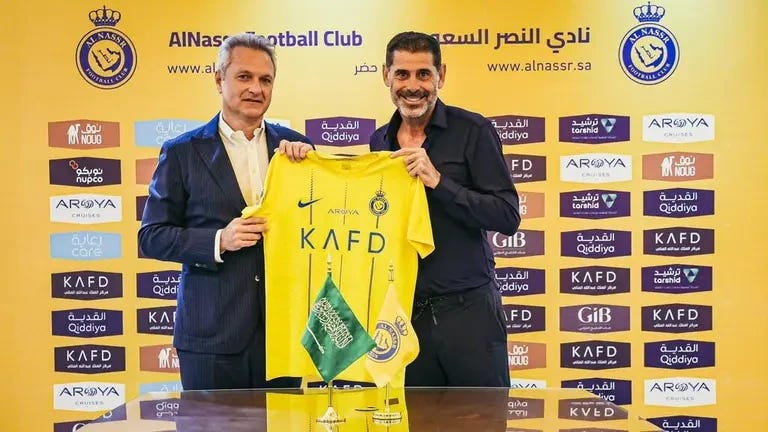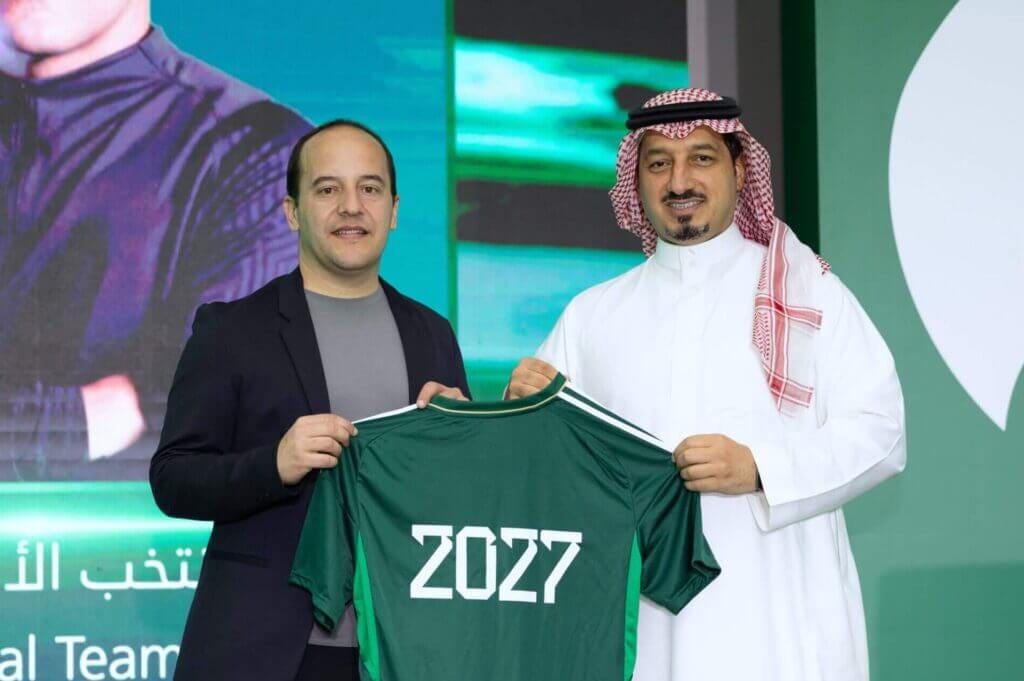How Saudi Arabia is Conquering Spanish Football
Since 2019 Spanish football has become more and more connected with Saudi Arabia, and it is not just because of the Supercopa de España.

The final of the 41th Supercopa de España was played Sunday, January 12th, in Jeddah. The Saudi city hosted the Supercopa in its first edition abroad, in 2020, but after the exceptional return in Spain due to the pandemic the tournament was played for three consecutive editions in Riyadh. 60,000 people gathered in the King Abdullah Sports City Stadium to watch Barcelona and Real Madrid. The Supercopa is a major actor in the history of the Saudi engagement in global sports: it was not the first European football tournament to be played in the Arab kingdom (this record belongs to Italy, in 2019), but it was the first to adopt the 4-teams formula, later copied by Italian Supercup.
The Supercopa de España was the battering ram Saudi Arabia used to break into football, and its story reveal how the Arab country operate in sport business. The Supercopa was conquered with money and - maybe - corruption, convincing Spanish football authorities not only to transfer the tournament in a foreign land but also to change its formula. During the last edition there were controversies around the harassment at the stadium by Saudi male fans against the wives of Mallorca players, and also Athletic Club’s forward Iñaki Williams contested the organization of the event, saying that “It's a shame that we have to play hundreds of kilometres away from our fans and our families. For me, it makes no sense to play here in Saudi Arabia”. The Spanish FA (RFEF) decided not to answer Williams’ criticism, but choose to correct the complaint from the wives of Mallorca players, stating that what they suffer was not an acoso (an harassment) - “which is always connected to the sexual sphere” - but an agobio (an overwhelm).
That seems a way to minimize what the women reported, protecting Saudi Arabia and the Supercopa itself from criticism. RFEF felt it had to act and say something, because the connection between Spanish football and Saudi economic network is fundamental for the development of RFEF projects.
Rubiales, Piqué and the Saudi Money

The Saudi-Spanish Supercopa has two fathers: one is Luis Rubiales, the former RFEF President and the man who signed the 2019 agreement with KSA authorities; and the other is Gerard Piqué, former Spain and Barcelona defender, now entrepreneur and the mastermind behind the King's League. At the end of April 2019, Marca revealed that RFEF favourite place to host the Supercopa was Saudi Arabia, and later that year the location was confirmed. The Gulf country invested €240 million in the project, a sum to be divided between the federation, the clubs and the intermediaries.
The last group consists essentially in Kosmos, a sports media company founded by Piqué and backed by Hiroshi Mikitani, a Japanese businessman well known as the CEO of Rakuten. Piqué and Mikitani are long-time friends: in 2017, when Rakuten became Barcelona’s main sponsor (thanks to a 4-years €220 million deal), the defender presented the new sponsorship to the media and said: “I have a really good relationship with the owner, Mikitani-san”. In the same year, in fact, the two founded Kosmos, which is the organizer of the Kings’s League. Rakuten is also the main sponsor of the Japanese football club Vissel Kobe since 2015, and in 2018 the club signed former Barcelona playmaker Andrés Iniesta and Juan Manuel Lillo - quoted by former Barcelona player and manager Pep Guardiola as one of his main inspirations - as a coach. The following year, Rakuten-backed Vissel Kobe signed two other former Barcelona players: David Villa and Sergi Samper.
Kosmos role as an intermediary in the Saudi-Spanish Supercopa agreement was revealed only in April 2022 by El Confidencial: for that operation the company earned €24 million. It is a very lucrative deal, considering that Piqué net worth is estimated around €80 million. But there is much more. In March 2024 Spanish Police brought in the RFEF offices and seized a bunch of documents, then deciding to arrest Rubiales, at that time no more RFEF President (he was forced to resign after the harassment scandal with the Spanish Women’s Team striker Jenni Hermoso). Thanks to that documents, Judge Delia Rodrigo concluded there were indications of wrongdoing and that Piqué received illegal payments for €4 million from Saudi Arabia. On May 30th, Piqué officially ended up under investigation. He was not alone: Pedro Rocha, the new RFEF President, was also investigated, because in 2019 he was RFEF economic branch vice President.
Spanish excellences in Riyadh

“I don’t think it is the best moment to go to Saudi Arabia” said in November 2019 Javier Tebas, President of the Spanish top championship LaLiga. The main reason Tebas opposed the Supercopa in the Gulf was the streaming scandal of beoutQ, the Saudi pirate platform at war with Qatari beIn Sports, which owned the tv rights of LaLiga. This early opposition was soon set aside, mainly because LaLiga too has a record of growing relantionships with Riyadh.
As Dermot Corrigan wrote recently on The Athletic, “dozens of lower-profile Spanish figures, including players, coaches, physios, executives and specialists in areas from youth development to marketing, are currently working in Saudi”. It goes from Al-Hilal CEO Esteve Calzada - Chief Marketing & Commercial Officer at Barcelona between 2002 and 2007, then Senior Advisor and Group Chief Commercial Officer at City Football Group between 2011 and 2024 - to Al-Nassr Sporting Director Fernando Hierro, who was an iconic player for Real Madrid; from Al-Ittihad Sporting Director Ramón Planes - who previously worked for Getafe, Barcelona and Real Betis - to Al-Qadsiah Techical Director Carlos Antón - former Real Madrid scout. Al-Qadsiah is the most “Spanish” club in Saudi Arabia: owned by state-controlled oil company Aramco, hired Antón in August 2023, and in the two following seasons signed five Spanish players (including former Villarreal and Olympique de Marseille Álvaro González and former Real Madrid Nacho Fernández). The coach is Míchel, who worked for Getafe and Olympiakos, and the technical staff is almost entirely composed by Spanish professionals.
The cult of the Spanish way-of-play is what convinced Saudi football authorities to tighten their connections with the Iberian country, and it is something started even before 2019, the year Piqué and Rubiales signed the Supercopa deal. In January 2018 LaLiga - already chaired by Tebas - reached an agreement with Saudi General Sports Authority and Saudi FA (SAFF) to allow 9 footballers to come to play in Spain: they were Yahya Al-Shehri and Marwan Othman (both to Leganés), Fahad Al-Muwallad (to Levante), Salem Al-Dawsari and Jaber Issa (both to Villarreal), Nooh Al-Mousa (to Valladolid), Ali Al-Namer (to Numancia), Abdulmajeed Al-Sulayhem (to Rayo Vallecano) and Alshabab Abdullah (to Sporting de Gijón). Just two of them managed to debut in Spain: Al-Muwallad played 26 minutes in two LaLiga matches, while Al-Dawsari played 33 minutes against Real Madrid on May 19th 2018. The economic value of this deal is not public.
There is another youth project that connects Madrid ad Riyadh: the Future Falcons, an U16 Saudi team launched in 2019 by Saudi Ministry of Sport, trained buy a Spanish staff in the state-of-the-art Mediterranean Sports Hub of Salou, Catalunya. The Future Falcons’ coach is former Real Madrid defender Míchel Salgado, who is also the coach of the Saudi U15 team. Again in 2019 Spanish club Almería was bought by Turki Al-Sheikh, who is also Chairman of General Entertainment Authority (GEA), a Saudi state department which organizes Riyadh Season. Last October, Riyadh Season signed a three-season deal with LaLiga, replacing the sponsor Visit Saudi, who in October 2023 paid €22 million into the coffers of Tebas' association. So the Saudi authorities have economic agreements with RFEF and LaLiga, they control a Spanish football club and heavily sponsor another one: in August 2023 Riyadh Air became Atlético de Madrid main partner, and two month later obtained the naming rights of Atlético’s stadium.
The Women’s Football ambitions
It might seem strange that Saudi Arabia is investing in women’s fooball, considering the worrying record of the country in women’s rights, but in the last years Riyadh government really tried to develop this sector. Obviously Spain has become another ideal model to follow, thank to its successes: Barcelona have won three of the last four UEFA Women’s Champions League, and the National Team currently holds the senior World Cup title, the U19 and the U17 European title, and in 2022 won the U20 World Cup.
On December 11th 2023, SAFF hired Lluís Cortés as a new coach of its National Team. Cortés guided Barcelona Femení between 2019 and 2021, and was awarded as UEFA Coach of the Year in women’s football in 2021. He is not alone in Saudi Arabia, because the local FA hired also Ana Ecube as Technical Supervisor: she worked in the staff of Barcelona and Atlético de Madrid. There are also two other Spanish coaches in the Saudi Women’s Premier League: Ana Junyent at Al-Riyadh, and David Cabildo at Eastern Flames. Last year Al-Shabab signed the former Albacete defender Patricia Padilla and the former Athletic Club’s forward María Díaz Cirauqui; but already in 2023 Al-Riyadh took in the first three Spanish footballers of Saudi history: Míriam Diéguez (at Barcelona between 2011 and 2017, 30 caps with Spain senior team), Carla Gómez and Aroa León.
The next step of this project it to bring to Saudi Arabia the women’s Supercopa: after the ending of the men’s tournament in Jeddah in January 2025, the new RFEF President Gabriel Louzán openly spoke about this possibility, backed directly by Ecube. Players like Nahikari García (Athletic Club) and Lucía Rodríguez (Real Sociedad) expressed their discomfort about playing in Saudi Arabia, due to the situation of women’s rights in the country. But Olga Carmona (Real Madrid) was more open to this possibility, saying that: “If they decide to go to play in Arabia, we have to follow the rules and there will be no problem”. The Spain National Team became very popular, after the 2023 World Cup, for its fight for women’s rights in football and society, but last year only one footballer - Maitane López, who now plays in the US with Chicago Stars - signed the letter addressed to FIFA President Infantino opposing the Aramco deal and speaking about the human rights violations in Saudi Arabia. However, the debate around the Spanish Women’s Supercopa in the Gulf is just at the beginning.





